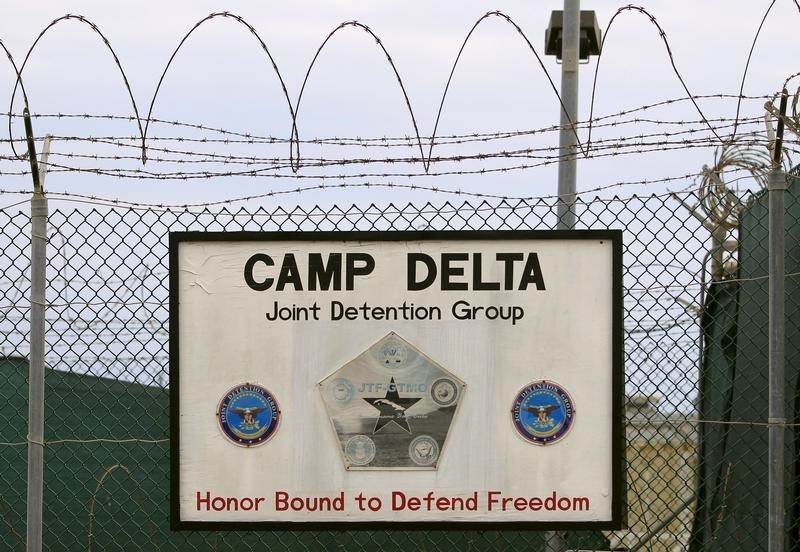By Tom Ramstack
FORT MEADE, Md. (Reuters) - A U.S. government investigation of attorneys for accused al Qaeda militants held at the military's Guantanamo Bay detention centre in Cuba created a conflict of interest for the lawyers in representing their clients, the attorneys said on Sunday.
The dispute during a military court hearing threatened further delays in trials for the alleged conspirators, which have dragged on for nine years.
A Justice Department attorney said during the hearing that the defence attorneys were cleared of criminal allegations by the year-and-a-half investigation.
The hearing at the Guantanamo Bay facility was monitored by Reuters over closed-circuit television from a media centre at Fort Meade, Maryland.
The secret investigation started after defence attorneys allowed a Guantanamo detainee to relay a five-minute personal message through a translator's telephone call to his family.
The FBI, the Justice Department and the Defense Department joined in the investigation of whether the defence attorneys violated national security laws that forbid the defendants from communicating with unauthorised persons.
Details of the investigation have not been revealed publicly, but Justice Department officials say there is no reason they should remain secret.
Even so, defence attorneys said they could not properly represent defendants such as Ramzi bin al Shibh until they have seen the investigation results and discussed them with their clients.
Bin al Shibh is charged with hijacking, terrorism and mass murder for allegedly conspiring with the Sept. 11, 2001, airline hijackers who attacked New York's World Trade Center and the Pentagon outside Washington and who hijacked another passenger plane that went down in Pennsylvania.
His attorneys "were criminally investigated for their representation of Mr. Bin al Shibh," said Air Force Lieutenant Colonel Julie Pitvorec, one of Bin al Shibh's defence attorneys. "How can there not be an appearance of a conflict?"
The attorneys said the investigation interfered with the constitutional rights of their clients to representation by counsel.
They also said the investigation had a "chilling effect" on their defence of the accused that gave their clients a right to decide whether they want different attorneys to represent them.
The issue was part of arguments about whether the military judge presiding over the case should declare the defence attorneys free of conflicts of interest that might prevent them from representing their clients.
Army Colonel Judge James Pohl described the investigation as a routine procedure that could be targeted at many government employees and contractors. He questioned defence attorneys about why they believed the investigation should continue to be important for the trial.
"The investigation is closed, and the United States government is taking no further action in any way, shape or form," Pohl said.

Pohl did not rule Sunday on whether defence attorneys were free of conflicts of interest. He said he would issue a ruling soon.